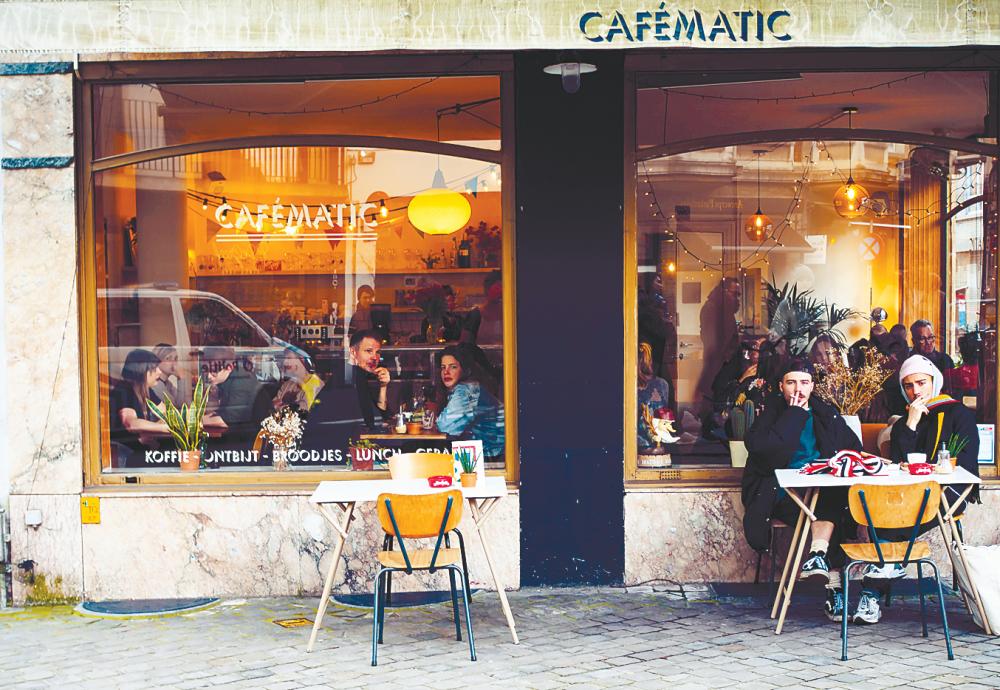IMAGINE us making the headlines - “Malaysia sets the world on fire as the first non-smoking nation”. Oops! Bhutan beat us to it! However, don’t be surprised if the law is passed, seeing that Malaysians surprised themselves by coming together and managed to vote in a new government; there’s really no foretelling the fate of smokers.
On Jan 1, the ban on smoking at all eateries in Malaysia came into effect. It came as a sign that the federal government is committed to seeing to the rights of the “some 80% of the public who are non-smokers” (stated a Bernama report), besides working towards a smoke-free country status; and enforcing stricter laws to attin these, similar to that of countries such as Finland and our neighbour, Singapore.
During a recent trip to The Lion City, the juxtaposition between Malaysia and the island nation in the context of smoking and cleanliness due to the absolute lack of strewn cigarette butts was as bright as day. As a smoker, I had to actively be on the lookout for designated smoking areas - not wanting to risk “lighting up” and being caught with a hefty fine of SG$200 (RM600). I learnt then from a local that the number of “smoking areas” was recently further reduced.
In Malaysia, the ban on smoking in eateries has been in effect for the past four months. While people have been adhering (kinda’) to the ruling during the first two months of 2019, the “tidak apa” (don’t care) attitude has begun its resurgence (you will find smokers in 24-hour restaurants after 12am).
It’s simple to understand why this is occurring; while the ban came into effect at the start of the year, the penalty is supposedly to begin from June. The word “supposedly” is key in this conversation, as the general public are still in the dark about the newly reinforced laws and regulations on smoking.
Now, four months into the ban, theSun chewed the fat (not tobacco) with several urbanites on the “smoking in eateries” ban, to share the people’s views and what they expect will happen in the near future (where smoking and the ban is concerned). The feedback ultimately skewed towards a positive slant (not surprisingly, as we Malaysians have been surprising ourselves quite a lot lately - no pun intended).
“I’ve been thinking about it for a long time. I think it’s a good thing, for a good cause,” said restaurant operator Abdul Samad, who claims he fully supports the government’s move on banning smoking in eateries.
However, he who sees to the operations of Restoran SS Maju in the bustling Mentari Court Apartment complex in Bandar Sunway, claims that there is clearly a decrease in the number of customers following the ban in January this year. Then again, he also said that there is just as visible, a positive effect.
“People who smoke will suffer from negative health effects, but beyond that, the smoke will affect non-smokers. It will affect kids, and most women don’t like it. These problems don’t happen here anymore”, he said, pointing out that while there is a drop in the number of customers who smoke, there is an uptick in entire families patronising the restaurant.
Samad proceeds to anticipate how smokers will, in the long run, save their money from not buying cigarettes and would then be able to use the money they save from it for other things (subtly implying that perhaps customers will have more to spend on food when at his restaurant).
“For me, personally, it says in Islam that humans should not poison themselves. Smoking is poisoning oneself. If you go to a clinic or a hospital, the first thing a doctor will ask is whether you smoke.”
Elsewhere closer to Kuala Lumpur, a worker of a restaurant around Jalan Telawi in Bangsar who preferred to remain anonymous, shared that the smoking ban is really not bad and hasn’t affected business.
“Nothing much has changed in Bangsar. In fact, it’s quite complicated especially in places such as here. You have a few restaurants spread out among bars. There are people that walk past the restaurant who will be smoking, while people inside won’t be smoking.”
One table across, just a little on the outside of the restaurant, but well within the three-metre ruling, sees someone openly smoking.
“I don’t think people care too much about it,” says a 28-year-old businessman who goes by the name Gavin. “The gap in between it (the rule) becoming official at the start of the year and when the fines and summonses begin is too wide; you’ll find people like me, smoking in eateries after 12am. If the government wants to clamp down, they should’ve done it immediately,” he says.
A family man and as a smoker who avoids smoking around children, Charles Wong explains that while he can rest much easier now bringing his kids to open-air restaurants without smokers actively smoking in the immediate vicinity, he is not very sure how serious the government is on having a long-term plan for the enforcement.
“I don’t mind walking out of an eatery for a smoke across the road, but this all looks like the usual ‘wayang kulit’ (performance). Becoming a smoke-free nation sounds great on paper, but what exactly do we know about the long-term road there? The current soft-ban, the fines that will begin in a few months, and the supposed plan to ban the import of cigarettes; all this is not much to go on. Nothing much is known about how it will be enforced either,” Wong adds.
To recap, the amendment to the “Control of Tobacco Product” regulation in Dec 2018 - Sec 36 of the Food Act 1983 (Act 281) does not permit smoking “where food is prepared, served or sold and includes - any room or area on a ship or train where food is prepared, served or sold; any area on a vehicle where food is prepared, served or sold, and any surrounding area within a radius of three metres from the vehicle; plus any area within a radius of three metres from any table or chair which is placed for the purposes of preparing, serving or selling food.”
Health Minister YB Datuk Seri Dr. Dzulkefly Ahmad updated theSun on the ban. “The number of warning notices from Jan 1 until Mar 24 this year amounts to 26,849. As much as 22,926 of the notices were due to premises that did not place the no smoking signage. The other 3,923 were warning notices issued to smokers caught actively smoking in eateries,” he said.
“The Ministry of Health will always cooperate with various parties to ensure enforcement is carried out effectively. Among these, the local authorities (PBT) have been given the power to carry out activities related to the enforcement of the law according to the Control of Tobacco Product Regulations (PPKHT) 2004. They can also work with the officers from the Ministry of Health on operations according to the rules and regulations under the PPKHT.
“Apart from the local authorities, the Ministry will also work with the Auxiliary Police who have been given the authority to help enforce the PPKHT. PBTs can also enforce the ban on discarding of cigarette butts under existing laws,” Dzulkefly concluded.
While there are splinter groups that are raising more than just their pitchforks against the ban, the road to a smoke-free nation will surely have to involve the government filtering out the white noise, pressing on and forging ahead to implement change. So, maybe it’s ...
TIME TO QUIT
* After 20 minutes: Heart rate and blood pressure begin to return to normal.
* 24 to 48 hours: Carbon monoxide levels in blood drops to a normal level.
* 2 weeks to 3 months: Improved circulation and increase in lung function.
* 1 to 9 months: Coughing and shortness of breath decreases, and the cilia (the tiny hair-like structures that move mucus out of the lungs) start to regain normal function - now better able to handle mucus, clean the lungs and reduce the risk of infection.
* 1 to 2 years: The excess risk of coronary heart disease is halved compared to a continuing smoker’s.
* 2 to 5 years: Risk of stroke falls to that of a non-smoker.
* 5 years: Risk of acquiring cancer of the mouth, throat, oesophagus and bladder is halved. The risk of cervical cancer falls to that of a non-smoker.
* 10 years: The risk of dying from lung cancer is about half of that of a person who is still smoking. The risk of larynx (voice box) and pancreas cancers decrease.
* 15 years: The risk of coronary heart disease is similar to that of a non-smoker.
However, we also understand that ...
OLD HABITS DIE HARD
Breaking an old bad habit is difficult. Some say you can’t really eliminate it, but to replace a detrimental habit with one that brings positive benefits. Here are a couple of suggestions on how to kick the habit - visit lung or oral cancer victims in hospital; try hypnosis or acupuncture. Alternatively, check out these websites - webmd.com, health.com, pickthebrain,com or livescience.com. A smoker friend highly recommends smokers visit tobaccoatlas.org which carries interesting and important tobacco-related facts and figures.














